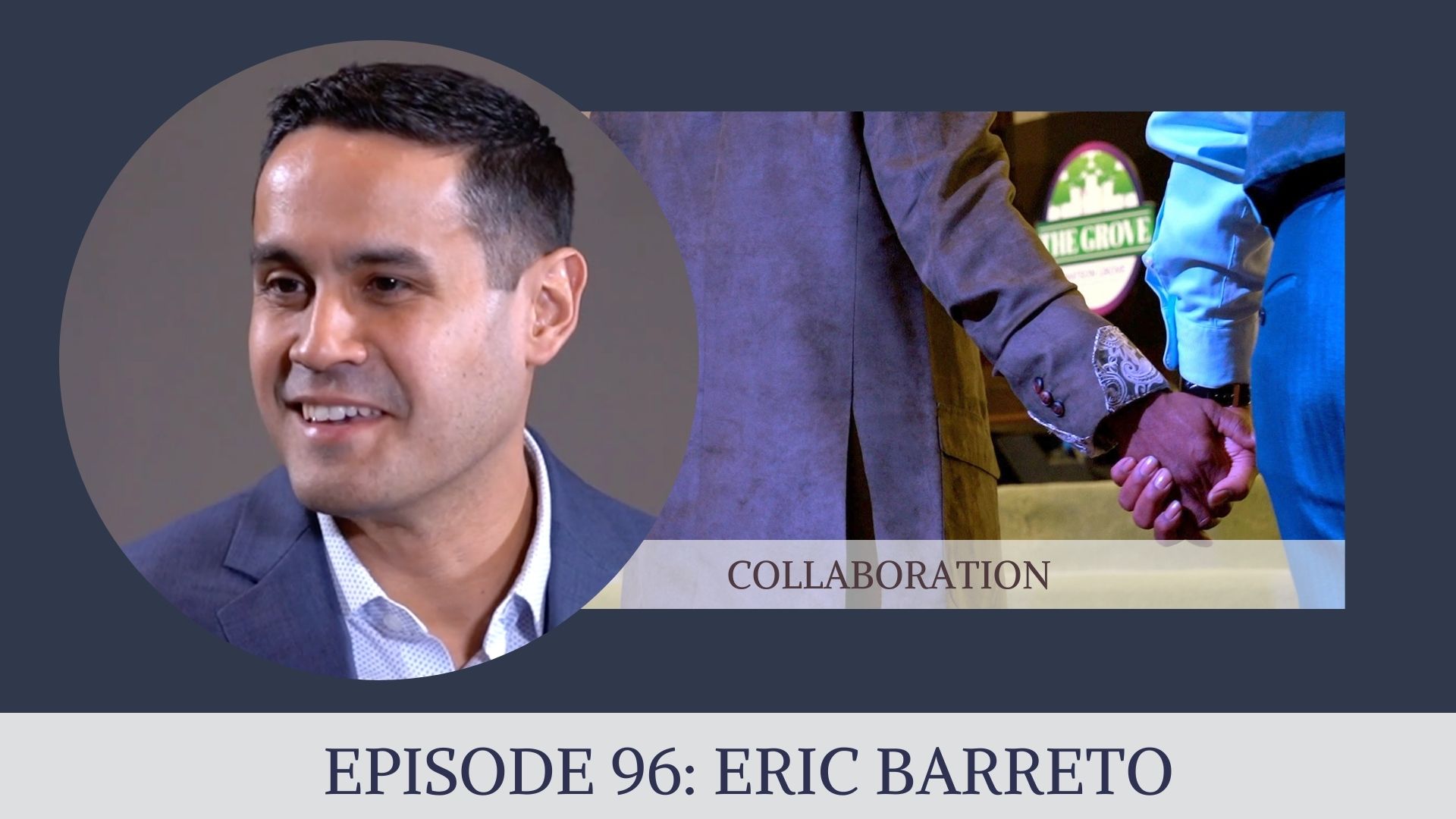Eric Barreto is someone I have been joyfully collaborating with in different ways for about ten years. We share interests in seminary teaching, learning the practice of ministry, and working for justice. Last year Eric was our first guest in Season Two of Three Minute Ministry Mentor. He talked with us about topics like curiosity, imagination, embodiment, and community.
Dr. Barreto is the Frederick and Margaret L. Weyerhaeuser Associate Professor of New Testament at Princeton Theological Seminary. And he is really interested in how people collaborate in ministry and the work of faith communities and theological education in light of the injustices of the world.
“What does a community of faithfulness look like in the midst of injustice?” ~Dr. Eric Barreto
Collaboration is so important to the work of ministry. We can’t go it alone and expect to make headway without partnerships and collaborations how many people and in many directions.
I admit it. This is challenging for me sometimes. Why? Because I worked much of my life to really believe that all the help I needed is available, if I simply look for it. And thus, I know how much trust it takes to truly believe in collaboration. However, when I take the risk and trust, the results are most often immediately fruitful. In this episode of 3MMM, I talk about collaboration. And I also tell as story about how collaboration was the fuel for the creation of the Saint John’s Bible.
More on Collaboration: video | blog | podcast
Learning in Practice with Eric Barreto

We interviewed Eric about his work as an author, teacher and preacher. And thoughtfully he shared his latest thinking on his ministry and teaching as practices. He gives us recent highlights of his recommended reading list. And of course as is our habit here at 3MMM, we asked for questions. Eric shares questions that will invite you and I to think with him. They give us all a greater sense of imagination about how we do ministry, teaching, spiritual practice and life.
What questions do you live by?
EB: The primary questions in my life emerge from the soil of the communities that have nurtured my faith. Thus, I wonder what the shape of justice is in a world haunted by the long legacies of racism, colonialism, misogyny, homophobia, and ableism. Moreover, how might Christian confession of God’s character, God’s encounter with the everyday struggles of prophets and the communities they call to justice, God’s extravagant grace, and God’s restoration and repair of creation shape the church’s imagination and work?
What questions do you wrestle with in your practice of ministry?
EB: I continue to wrestle with a number of questions. One is about the deep need for increased racial and ethnic diversity among theological educators at the very moment when higher education is facing so many financial and missional crises. The future leaders of God’s church need to be taught by a faculty that reflects the diverse stories and experiences of the communities they are called to serve. So, how do we best equip a diverse cadre of future scholars and leaders? How do we help them confront and work within an education system in crisis?
Question from @ericbarreto to get you thinking this Monday morning. What do YOU think? #MondayMotivaton #MinistryMonday#3mmm pic.twitter.com/Sz1HJ48hqY
— Three Minute Ministry Mentor (@3MinuteMin) February 1, 2021
How has your practice of ministry changed over time?
EB: The most significant gift of the growing sense of my own practice of ministry is the insight—affirmed over and over again—that ministry is not a solitary vocation. That is, the most faithful and sustainable ministry is one engaged in community: with those we are called to serve but also our colleagues in the work as well. Learning from and loving others in ministry is God’s reminder that grace is a divine gift to interwoven communities.
What is on your must-read list right now?
EB: At the top of my suggested reading list is Willie Jennings’ haunting assessment of theological education, After Whiteness. There you will find a clear vision for theological education but also the practice of ministry that will require us to lean into God’s grace to enflesh. (After Whiteness was also recommended by both Carrie Doehring and Chris Scharen. Read a recent interview with Dr. Willie James Jennings’ about his book here.)
I would also commend my PTS colleague Lisa Bowens’ new book, African American Readings of Paul. In it, Dr. Bowens teaches us the complex ways black communities have wrestled with Pauline texts and demanded a word of justice spring from them.
Finally, is Matthew Thiessen’s Jesus and the Forces of Death, a needed antidote to so much anti-Jewish reading of the Gospels.
++++++++++++
 “Collaboration” is also the focus of chapter four of Eileen’s forthcoming book, Pastoral Imagination: Bringing the Practice of Ministry to Life . Pre-orders are open now!
“Collaboration” is also the focus of chapter four of Eileen’s forthcoming book, Pastoral Imagination: Bringing the Practice of Ministry to Life . Pre-orders are open now!
Friends, we hope you will watch for a special opportunity to get both the new book and a companion journal. Announcement coming soon! Stay with us!
Remember we are here to accompany you as you cultivate a larger sense of pastoral imagination in your practice of ministry. Don’t go it alone. Seek ways to collaborate with your local partners and with us!




